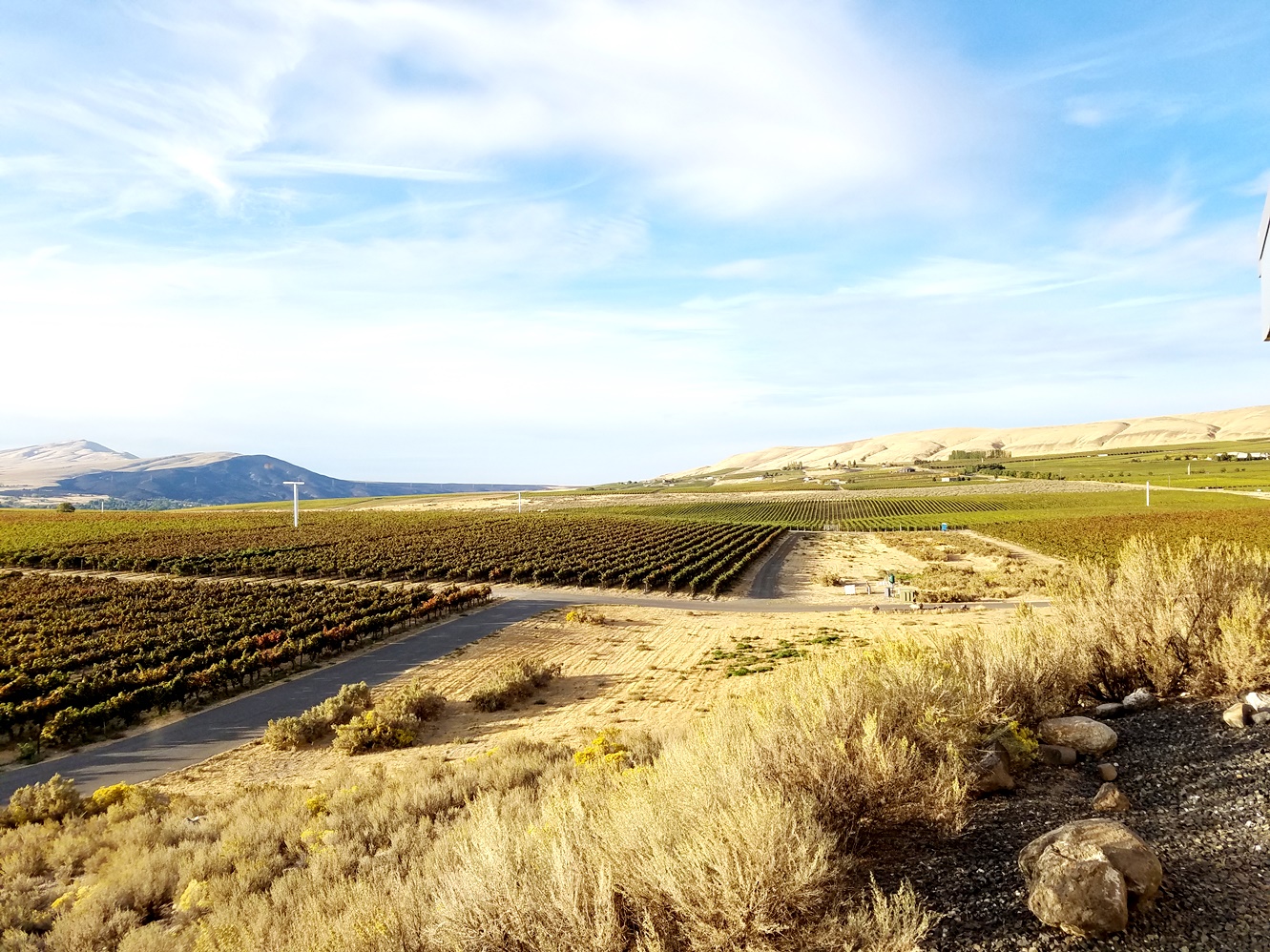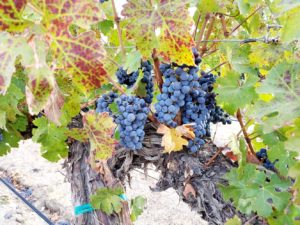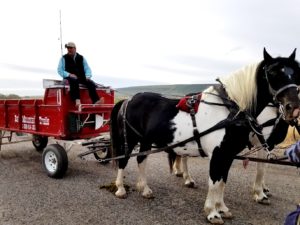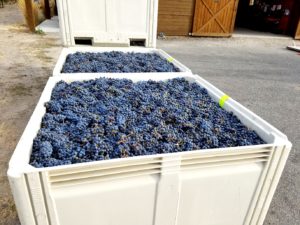You may not be familiar with wines from the Red Mountain American Viticultural Area (AVA) in Washington state.
And neither was I until my visit this past October as part of the 2018 Wine Bloggers Conference.
But I’m a fan of now.
Here are six reasons why real wine lovers should visit and get to know wines from Red Mountain.
#1 Wines from Red Mountain are under the radar.
It probably goes without saying that we wine lovers get a certain kick out of drinking wines from an area before it pops into the wider public consciousness — both because we like to be able to acquire the wines while they are still affordable and because we truly enjoy the adventure of discovery through our wine glass.
The Red Mountain AVA is new and was only officially established in 2001.
Before then it was part the Yakima Valley AVA which itself is a subregion of the larger Columbia Valley AVA.
The Red Mountain AVA is the smallest and also the warmest wine-grape growing region in Washington state composing only 4,040 acres.
The majority of the land within the AVA is already planted with grapes, so the supply of wines from this area is necessarily limited.
The AVA is named “Red” Mountain not because the soil in this region is red, but rather because of the dark red-colored wild grass, drooping brome (also called cheatgrass), that covers the mountains in springtime.
The region is characterized by its south-facing slope, dry climate with only 5.8” of rain per year, windiness which reduces berry size and increases the thickness of the skins, low-nutrient dirt, and high northern latitude (N 46°) which means the region gets 16-17 hours of sunlight during the prime growing season.
Given Red Mountain’s warm climate, the region is known for cabernet sauvignon, merlot and syrah.
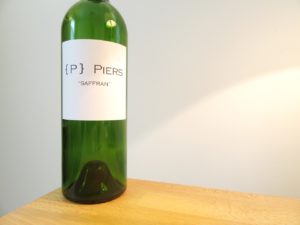
Photo Credit: Wine Casual, P Piers, Saffran 2011, Red Mountain, Washington (Wine Casual, 93 Points).
#2 Only 30% of the grapes from the Red Mountain AVA are estate bottled, so you’ll want to visit the estates that are at the epicenter of it all.
The majority of wines you’ll find on the store shelf from Red Mountain are not estate bottled which means most of the grape growers in the area sell their fruit to other wineries that make wine from purchased fruit.
This is not an uncommon practice in the wine industry.
And of course, non-estate-produced wines are not categorically of any lesser quality than estate-produced wines.
But it’s helpful to know when you walk into a wine store that there’s a 70% chance the wine you’ll find from Red Mountain will not be estate bottled.
This is a good thing because you can be less concerned about finding a wine from specific producer and more focused on a finding a wine from Red Mountain period.
Given the small and necessarily-limited supply of fruit, Red Mountain wines have to bring their game because the entire region’s reputation depends on it.
And yes, they have game.
If you visit the region, you’ll get to sample some of the estate produced wines from producers like Kiona Vineyards, Hamilton Cellars and Ciel du Cheval who all make their own estate wines as well as sell fruit to other wineries in the area.
#3 This horse wagon ride through the vineyards.
Until recently, I had never toured a vineyard via horseback-driven wagon and was admittedly a little skeptical that my impression of a vineyard could be affected by how I actually saw it, but this experience proved me wrong.
Touring a vineyard via wagon versus on a tour bus is like the difference between having a farm-to-table meal or a big mac.
Yes, both can get the job done of satiating your appetite, but only one experience are you likely to tell your friends about.
I rode in the back of wagon with other wine bloggers while hearing directly from a winemaker who described individual rows in the vineyards and also shared stories about the area.
Teresa, from Red Mountain Trails guided our wagon buggy through the vineyard hillside and shared tips about how to get the most out our visit, including in my case where to find some of the best Red Mountain cabernet franc.
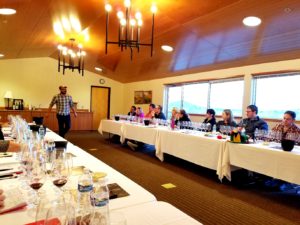
Photo Credit: Wine Casual, JJ Williams from Kiona Vineyards shares that women winemakers are flourishing in the Red Mountain AVA.
#4 Women winemakers are flourishing in Red Mountain.
JJ Williams, the Director of Operations at Kiona Vineyards, led me and other wine bloggers through a blind tasting that compared wines from Red Mountain to wines from some of the most renowned winemaking regions in the world, and the quality of Red Mountain fruit certainly stood up.
JJ shared that in terms of gallons of wine produced, 50% of the wine produced in the Red Mountain AVA is made by women makers.
This was a surprising and welcome fun fact that made me love the region even more.

Photo Credit: The Lodge at Columbia Point near the Red Mountain AVA provides Riedel glasses in your room.
#5 This awesome boutique hotel that provides you with Riedel glasses in your room as a standard.
I normally don’t write about the hotels that we wine bloggers pay to put ourselves up in during conferences, but I really do have to say how much I enjoyed my stay at The Lodge at Columbia Point boutique hotel.
In addition to each room having a gas-fireplace and balcony, The Lodge also provides you with Riedel wine glasses to use during your stay.
On the rare occasion a hotel does provide wine glasses in your room or upon room-service request, it’s usually those small, thick-glassed-rimmed cheap ones and not high-quality crystal like that from Riedel which is so delicate it can break if you look at it funny.
I appreciate being able to enjoy wine on vacation the way I am accustomed to at home – especially after a tiring day of wine tasting. #GoldStarWineMoment.
#6 The wine is really, really good.
So, I probably should have led with this, but Red Mountain wines are definitely impressive.
They have a certain concentration, complexity and authenticity that comes through in spades.
But don’t take my word for it.
Pickup a bottle or visit Red Mountain and see for yourself.
Below are some of the wines from Red Mountain and Columbia Valley that I’ve enjoyed.
- Portrait Cellars, Cabernet Franc 2009, Red Mountain, Washington (Wine Casual, 95 Points)
- P Piers, Saffran 2011, Red Mountain, Washington (Wine Casual, 93 Points)
- Fall Line Winery, Artz Vineyard 2012, Red Mountain, Washington (Wine Casual, 92 Points)
- Tapteil, Grenache 2014, Red Mountain, Washington
- Hamilton Cellars, Weinbau Cabernet Franc 2013, Columbia Valley, Washington (Wine Casual, 93 Points)
